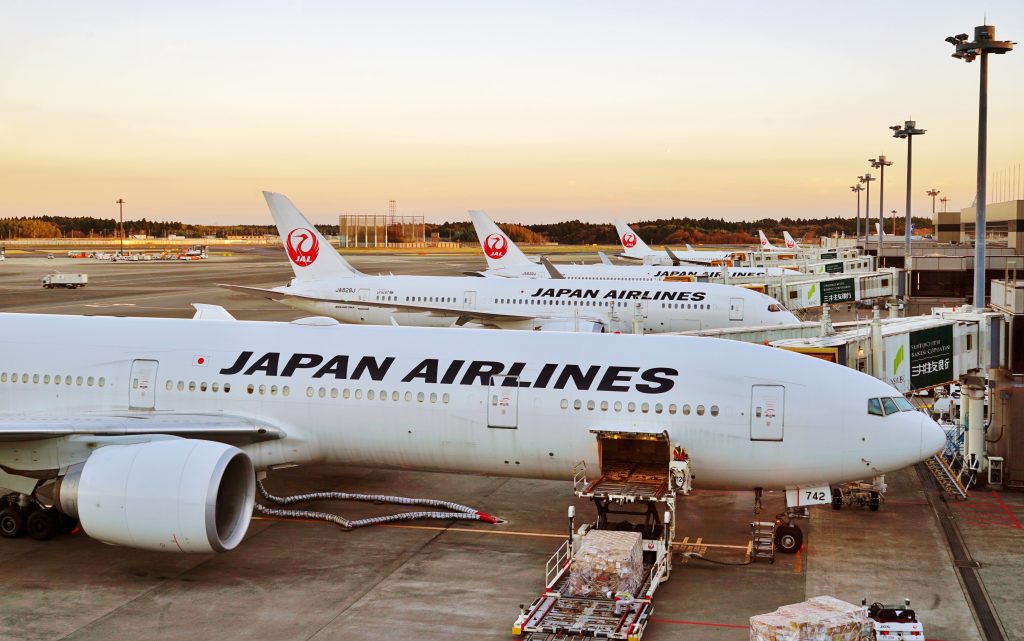
- ARAB NEWS
- 14 Jul 2025

After going bankrupt 10 years ago with a debt of 2.3 trillion yen, the largest business failure in Japan excluding financial institutions, Japan Airlines achieved a swift recovery thanks to public assistance, as well as job cuts and management reform under Kazuo Inamori, the founder of Kyocera Corp.
However, there has been persistent criticism that generous state assistance to the airline distorted fair competition.
"We caused trouble to many parties concerned, including our shareholders, related government agencies and ministries, as well as partner financial institutions," JAL President Yuji Akasaka said in an interview held ahead of the 10th anniversary Sunday of JAL's bankruptcy.
"There are many people who are still suffering from the pain they incurred 10 years ago, and we never think that we have restored trust 100 percent," he said. "By contributing to society through our businesses and developing continuously, we hope to recover trust."
Before the bankruptcy, poor business results were normal at JAL, which had many problems, including operations with large aircraft with poor fuel efficiency and high pension payments to retirees.
The administration of the now-defunct Democratic Party of Japan, launched in September 2009, decided to utilize the government-backed Enterprise Turnaround Initiative Corp. of Japan for a drastic reform of the airline.
After making prior arrangements with related parties to prevent the bankruptcy from causing flight service suspension, the administration made JAL file for legal liquidation.
Public funds totalling 350 billion yen were injected through the turnaround body, and JAL's creditor banks agreed to write off debts of a total of 521.5 billion yen.
Individual shareholders also suffered damage due to JAL's delisting from the stock market and a 100 percent reduction in JAL's capital.
Inamori, who became JAL's chairman at the request of the DPJ-led government, changed the mindset of JAL workers by, among other ways, introducing the "amoeba" management system, in which each amoeba, or division, pursues its own profits.
"Before the bankruptcy, our management and workers lacked cost awareness and responsibility," Akasaka said.
"This changed massively thanks to instructions by (then) Chairman Inamori," he said.
Also by cutting 16,000 jobs, including through dismissals, JAL posted a consolidated operating profit of 204.9 billion yen for the year to March 2012.
The company came back to the first section of the Tokyo Stock Exchange in September in that year.
While JAL achieved a V-shape recovery, some criticized that the assistance given to JAL was too much.
"Some in the government at the time thought JAL should go out of business, but I thought there should be an environment where JAL and All Nippon Airways compete with each other," then transport minister Seiji Maehara said.
"Some say the assistance was unfair, but they say so because the reconstruction went well," Maehara said in a separate interview.
The transport ministry made efforts to correct the unfairness by monitoring JAL management to restrict new investment and giving preferential treatment to ANA when allocating departure and arrival slots at Tokyo International Airport at Haneda.
Since the ministry's monitoring ended at the end of March 2017, JAL has steered itself into a new growth route, planning to launch budget flight services in May this year, for example.
The airline hopes to capitalize on the increase of the departure and arrival slots at Haneda airport in March and business opportunities to be provided by the 2020 Tokyo Olympic and Paralympic Games in summer.
"While increasing the number of international flights, we will also pursue new businesses," Akasaka said.
JIJI Press